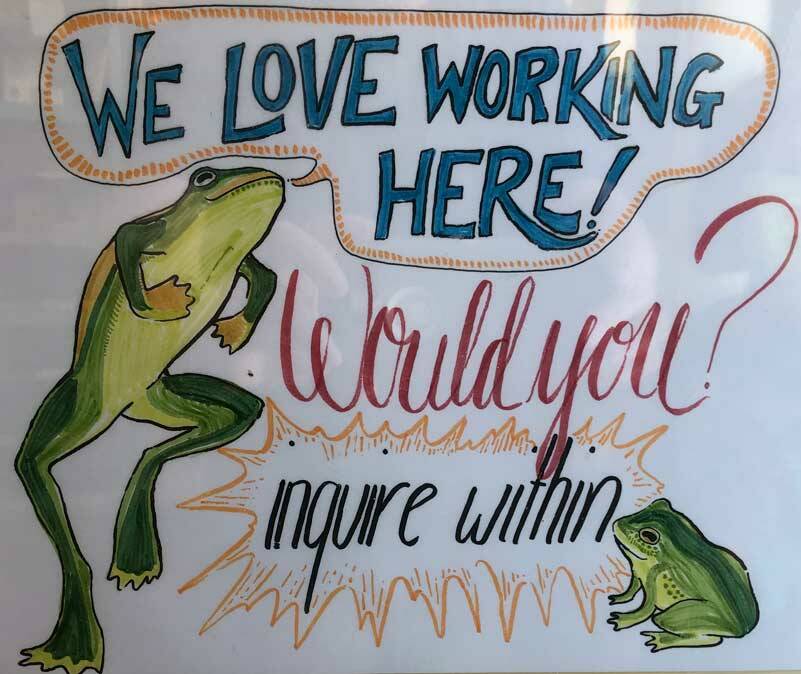By Morf Morford, Tacoma Daily Index
Employment 101
The one over-riding rule of the economy in every aspect from production to transportation to employment and pay scales is that in 2023, and maybe for a long time to come, there are no rules. Or at least no rules and guidelines that seemed to work just fine as something like enduring, reliable principles, until now.
Who’s hiring? Who’s cutting back? Who is closing? Who is expanding?
It seems to be just about everyone – at one time or another.
Some trends are inevitable if not seemingly irreversible – like massive retirements across multiple industries. Mix in technological changes, demographic tidal waves, a war in Europe and erratic immigration policies and you have a recipe for unpredictability like we have never seen before.
Seemingly impervious companies like Amazon, Alphabet, Meta, Microsoft and more have all slashed tens of thousands of positions recently. And most are projecting even more cuts later.
Could the economy get crazier?
In a word, yes. And it probably will.
We are in an economy of mixed messages; inflation? Tight job market? All of the above?
Technically, you can’t have a recession without sustained high unemployment. A recession is, under normal conditions defined as two consecutive quarters with negative growth in the overall economy.
But we are in far from normal conditions.
The economy added, on average, 400,000 new jobs a month throughout 2022. And job openings are about double what they were just a few years ago.
In short, layoffs, hiring and employment projection numbers are huge – but not even remotely consistent.
Don’t cry for the tech workers
More than 1,000 tech companies announced cuts of almost 160,000 jobs in 2022, according to the tracking website Layoffs.fyi. And about 100,000 jobs already have been given an expiration date for this year.
Oddly enough, the impact to the overall economy isn’t as big as these numbers may make it first appear. As you might expect, many tech workers get quickly reemployed. In a survey by ZipRecruiter, 8 out of 10 had found a job within three months of a layoff.
Debt and the debt ceiling
Individuals are borrowing from friends and family at record rates.
If you think the federal debt ceiling is scary (and you should), consider that half of the residents of Washington have borrowed money from friends or family member in the past year. That adds up to almost $5 billion.
Who knows how that ranks as a reliable economic indicator, but it can’t be good. At least for the long term.
You can see the rate of other states here.
No one wants to work anymore
Of all the dumb things lots of people take as truth in today’s job market, this one should win a prize. Somehow we went from multiple side-hustles to “no one wants to work” in record time. I think the reason we can come to such contradictory conclusions is that the economy looks different every time we look at it.
Every industry, every season and every region seems to have its own set of dynamics at work.
Our economy is sort of like a party where someone mixed up several 1000 piece puzzles and requires that guests put them together before they can leave.
We are hiring. No, we aren’t. Yes we are. Actually, we have no idea…
In many areas and industries, there are about two job openings today for every unemployed worker. Except, of course, when there isn’t.
Some companies and industries are raising requirements for potential employees – other are lowering them. Some are lowering the age for retirement. Other are raising it.
All I can say for sure is, hold your career lightly, set aside a “rainy day fund” and hold on for the ride. Some might call this “lay-off brain” and it might be a reasonable response to an economy that demands survival strategies most of us have never used before.
But wait, there’s more!
Some states are loosening child labor laws to fill gaps in the labor market. What could go wrong with 13 year-olds at the workplace?
Whether it’s a factory or an office or an agency, kids just don’t belong there. It’s a whole new spin on “bring your children to work”.
In short, this is the economy no one warned us about. And we would not have believed them anyway.






